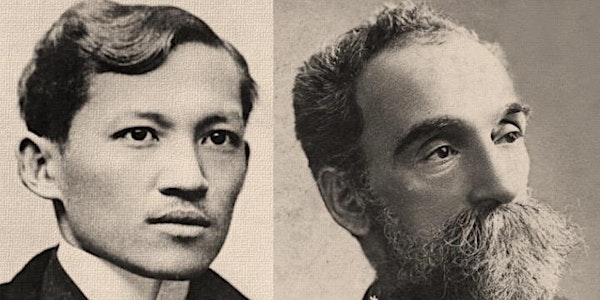
Actions Panel
POSTPONED - Hostos and Rizal: Literature at the Margins of the Empire
POSTPONED What did the cultural exchange across the Pacific Ocean looked like in the eve of the Spanish-American War?
Date and time
Location
Jackman Humanities Building
170 St. George St. Room 318 Toronto, ON M5R 2M8 CanadaAbout this event
THIS LAS EVENT HAS BEEN POSTPONED
LAS Visiting Scholar Marilola Pérez shares with us her research on Trans-Pacific cultural studies.
Beyond their geographic similarities, the Philippines and the Spanish Caribbean were also the last colonies of the falling Spanish empire and at the eve of the Spanish-American War had ongoing communication. I focus on this time period to understand the cultural exchange across the Pacific. Although scarce, research on this topic has focused on the connection of the figures of Jose Rizal, in the Philippines and Jose Martí in Cuba. In this talk I expand the Cuban-Philippine connection of Rizal with another paramount Caribbean thinker, Puerto Rican Eugenio Maria de Hostos, who was a key player in the project of the Sovereign Antilles Confederation. I focus on the literary production to look at their two foundational texts: Hostos’s La peregrinacion de Bayoan (1863) and Rizal’s Noli Me Tangere (1887). Both novels portray the struggle of the colony against the imperial oppressor through the predicament of characters that are crucial to understand the idiosyncratic as well as shared preoccupations of the trans-oceanic independence movements. Through their work, both intellectuals traced alternative networks of anticolonial communication and organization and assumed the duty of denouncing the oppressive colonial systems and re-presenting the meaning of imperial relations of power.
Furthermore, the novels also serve us to examine important divergences between Spain’s remaining colonies in the late 19th century. Immediately evident are the ethnolinguistic differences between the colonies. By the end of the 19th century, Puerto Rico had a somewhat culturally homogeneous Spanish speaking population, while the Philippines had over 100 different languages and barely 10% population spoke Spanish. I argue that the ethnolinguistic context serves as a backdrop to understand important differences between these works. For instance, Rizal, a Chinese mestizo himself, creates a novel that is essentially polyphonic with a narrator that is more attuned to the irony of the official imperial discourse approaching it with humor. On the other hand, Hostos’ approach to fiction is almost scientific in its pursuit of the truth. A study of the characters is also discussed with attention to how they articulate the feasibility of a new colonial subject.
About the Presenter
Marilola Pérez is a LAS Visiting Scholar for 2019/2020. She holds a Ph.D. from the University of California Berkeley in Linguistics.
Her research fits into current academic trends that defy geographical boundaries to include the Philippines in the Latin America imaginary. She has focused on the Cavite City variety of Philippine Creole Spanish (popularly called "Chabacano"), a language that emerged in a highly multilingual community during the Spanish colonial rule, to investigate the historical and sociolinguistic features that make Chabacano an atypical Creole language. Her current project compares the political and literary production of the Philippines and the Spanish Caribbean at the eve of the Spanish-American War with particular attention to the figures of Jose Rizal in the Philippines, and Eugenio María de Hostos and Ramón Emeterio Betances in Puerto Rico.
Disclaimer: Please note that events posted on this website are considered to be public events – unless otherwise stated – and you are choosing to enter a space where your image and / or voice may be captured as part of event proceedings that may be made public as part of a broadcast, webcast, or publication (online and in print). We make every effort to ensure your personal information is kept and used in compliance with the Freedom of Information and Protection of Privacy Act (FIPPA). If you have any questions, please get in touch with our office.